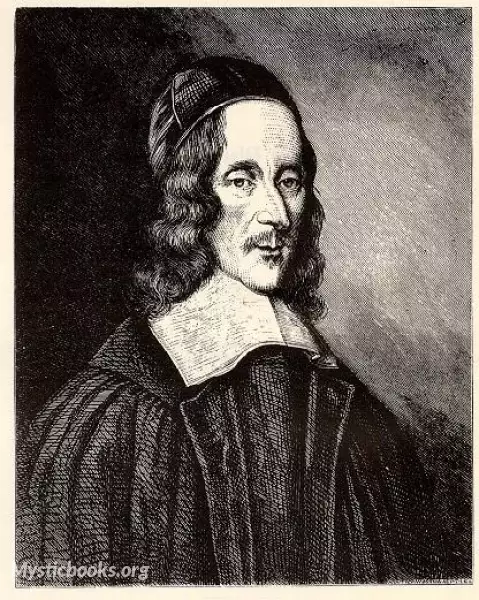
Timeline
Title
Country/Nationality
George Herbert
George Herbert was a poet, orator, and priest of the Church of England. His poetry is associated with the writings of the metaphysical poets, and he is recognised as "one of the foremost British devotional lyricists." He was born into an artistic and wealthy family and largely raised in England. He received a good education that led to his admission to Trinity College, Cambridge, in 1609. He went there with the intention of becoming a priest, but he became the University's Public Orator and attracted the attention of King James I. He served in the Parliament of England in 1624 and briefly in 1625.
After the death of King James, Herbert renewed his interest in ordination. He gave up his secular ambitions in his mid-thirties and took holy orders in the Church of England, spending the rest of his life as the rector of the rural parish of Fugglestone St Peter, just outside Salisbury. He was noted for unfailing care for his parishioners, bringing the sacraments to them when they were ill and providing food and clothing for those in need. Henry Vaughan called him "a most glorious saint and seer". He was never a healthy man and died of consumption at age 39.
George Herbert was born 3 April 1593 in Montgomery, Montgomeryshire, Wales, the son of Richard Herbert (died 1596) and his wife Magdalen née Newport, the daughter of Sir Richard Newport (1511–1570). He was one of 10 children. The Herbert family was wealthy and powerful in both national and local government, and George was descended from the same stock as the Earls of Pembroke. His father was a member of parliament, a justice of the peace, and later served for several years as custos rotulorum (keeper of the rolls) of Montgomeryshire. His mother was a patron and friend of clergyman and poet John Donne and other poets, writers and artists. As George's godfather, Donne stood in after Richard Herbert died when George was three years old. Herbert and his siblings were then raised by his mother, who pressed for a good education for her children.
Herbert's eldest brother Edward (who inherited his late father's estates and was ultimately created Baron Herbert of Cherbury) became a soldier, diplomat, historian, poet, and philosopher whose religious writings led to his reputation as the "father of English deism". Herbert's younger brother was Sir Henry Herbert, Master of the Revels to Kings Charles I and II.
The earliest portrait of George Herbert was engraved long after his death by Robert White for Walton's biography of the poet in 1674 (see above). Now in London's National Portrait Gallery, it served as basis for later engravings, such as those by White's apprentice John Sturt and by Henry Hoppner Meyer in 1829.
Among later artistic commemorations is William Dyce's oil painting of "George Herbert at Bemerton" (1860) in the Guildhall Art Gallery, London. The poet is pictured in his riverside garden, prayerbook in hand. Over the meadows is Salisbury Cathedral, where he used to join in the musical evensong; his lute leans against a stone bench and against a tree a fishing rod is propped, a reminder of his first biographer, Isaac Walton. There is also a musical reference in Charles West Cope's "George Herbert and his mother" (1872), which is in Gallery Oldham: the mother points a poem out to him in a room that has a virginal in the background.
Most representations of Herbert, however, are in stained glass windows, of which there are several in churches and cathedrals. They include Westminster Abbey, Salisbury Cathedral and All Saints Church, Cambridge. His own St Andrew's Church in Bemerton installed in 1934 a memorial window, which he shares with Nicholas Ferrar. In addition, there is a statue of Herbert in his canonical robes, based in part on the Robert White portrait, in a niche on the West Front of Salisbury Cathedral.
Books by George Herbert
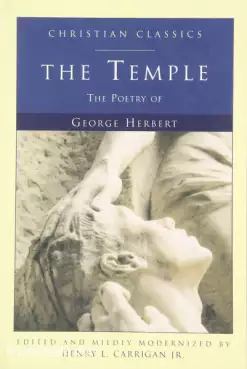
From The Temple
Herbert's poetry is on the surface about God, religion, devotion and other mind-numbing (to me) generalities. However, these doctrinal MacGuffins are only there (in my secular reading) for Herbert to jump-start his creativity. His fecund display of w...
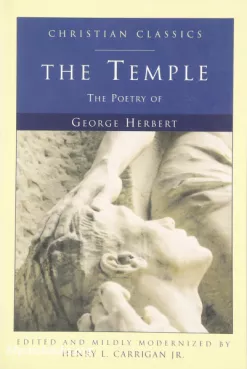
The Temple
In The Temple, a collection of poems written in the early 17th century, George Herbert weaves together intricate verses that explore the depths of faith, devotion, and the human experience. Published posthumously in 1633, this collection has since be...
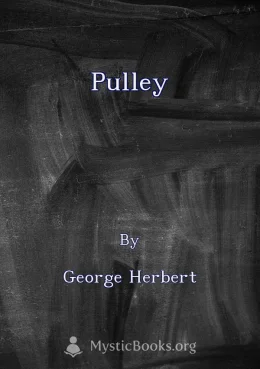
Pulley
LibriVox volunteers bring you 11 different recordings of The Pulley by George Herbert. This was the weekly poetry project for the week of June 15th, 2008.
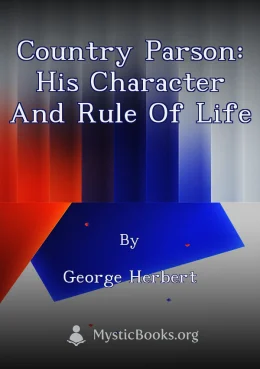
Country Parson: His Character and Rule of Life
The Country Parson is a guidebook for priests, written by the English poet and clergyman George Herbert in the 17th century. It offers practical advice on how to fulfill the duties of a priest, including how to prepare sermons, conduct services, and...
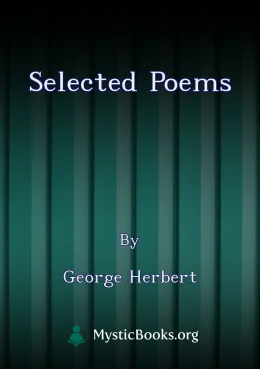
Selected Poems
This collection of poems explores the intricate journey of an individual's relationship with God. Herbert's work delves into the personal struggles and triumphs of a soul seeking a deeper connection with the divine. The poems demonstrate the evoluti...